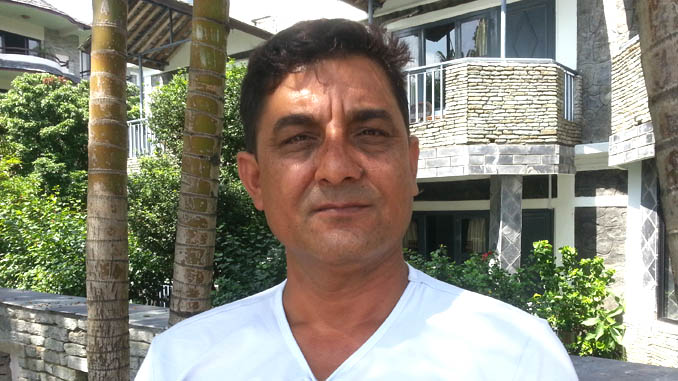
Puskal Bahadur Thapa has been unanimously elected as a president of Embroidery and Garment Association (EGA) Pokhara. Recentfusion.com has tried to update its surfers about his upcoming working plan as a new president of EGA. Conclusion of a face to face conversation is presented here:
How are you driving EGA in upcoming days?
As a new president of EGA, I am planning for training program to our member entrepreneurs in off-season of tourism. The visit to garment industries and shops in Bangladesh is my plan that will be included an interaction too. Development of garment business through co-operative and the fulfillment of corporate social responsibility are also in my chart.
What are the major challenges and problems that embroidery entrepreneurs facing?
The load-shedding is one of the key problems that is hampering in competitiveness of our productions. The cost of the manufacturing goods goes up as we have to bear the extra burden of power and fuel when manufacturing the goods. So, the government should come up with a concept of certain area like industrial zone for embroidery production.
How is the market management of embroidered garments?
Most of our customers are foreign tourists who love handicrafts and needle-worked garments. Numbers of foreign traders also are in touch with us. They shop our productions in gross basis. There are all total 76 members in EGA Pokhara where we could see around 380 million rupees of investment excluding land. So, we are trying to do our best for the marketing of our productions.
Where do you entrepreneurs buy raw materials from?
Most of the raw materials we use come from the India and other countries. It is very unfortunate that there is very few garment industries in Nepal. Hetauda Garment Industry and such other industries have closed years before. By the time they were on, we used to buy Nepali productions. So, the government should reopen the shut garment industries.
How is the market of Nepali garment in international arena?
The market is good however we are losing our competitive capacity due to various reasons. At the same time, Nepali trade mark is being misused in International market. For example, we have found that many traders from Bangladesh and India sell their productions tagging ‘Made in Nepal’ since that is a saleable and popular branding internationally. So, Nepal government should take initiative to curb that cheating.

Leave a Reply